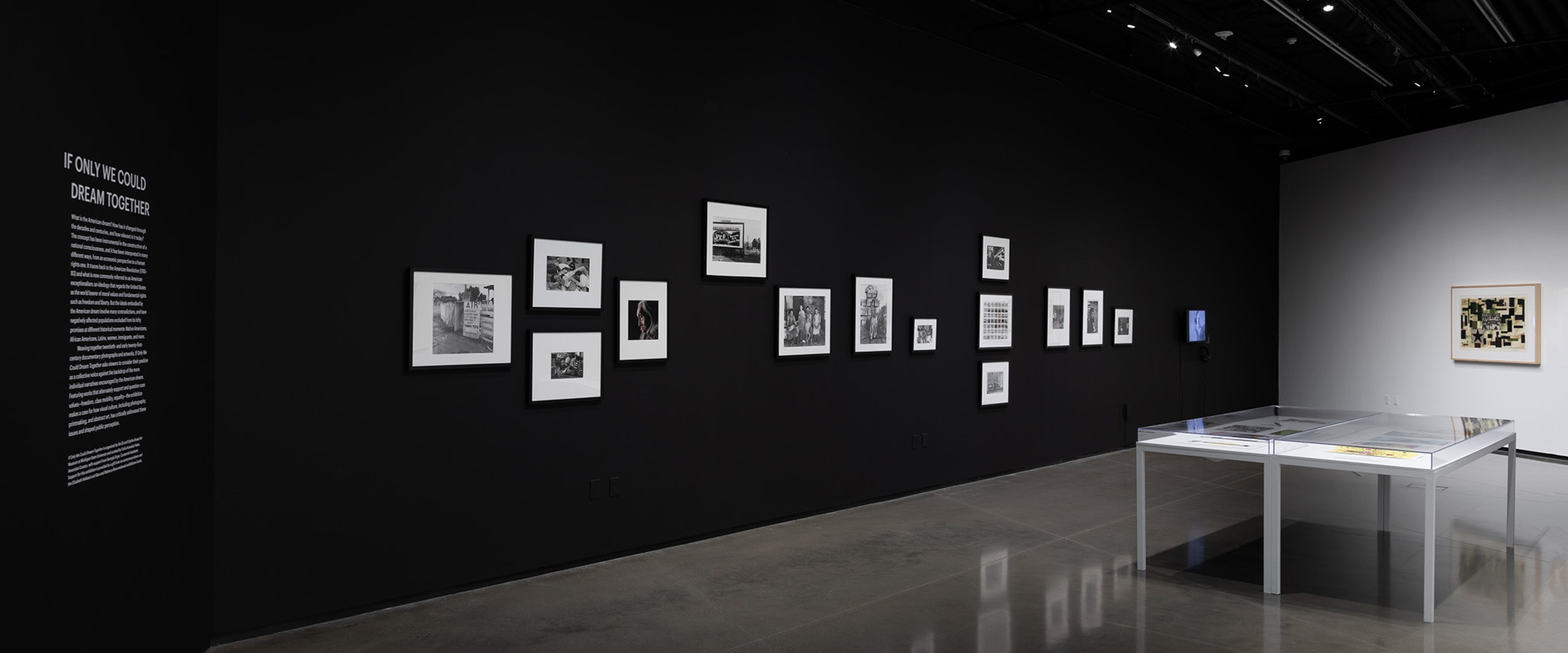If Only We Could Dream Together is organized by the Eli and Edythe Broad Art Museum at Michigan State University and curated by Carla Acevedo-Yates, Associate Curator, with support from Georgia Erger, Curatorial Assistant. Support for this exhibition is provided by a gift from an anonymous donor and the Elizabeth Halsted and Alan and Rebecca Ross endowed exhibitions funds.
About the Exhibition
What is the American dream? How has it changed through the decades and centuries, and how relevant is it today? The concept has been instrumental in the construction of a national consciousness, and has been interpreted in many different ways, from an economic perspective to a human rights one. It traces back to the American Revolution (1765–83) and what is now commonly referred to as American exceptionalism: an ideology that regards the United States as the world bearer of moral values and fundamental rights such as freedom and liberty. But the ideals embodied by the American dream involve many contradictions, and have negatively affected populations excluded from its lofty promises at different historical moments: Native Americans, African Americans, Latinx, women, immigrants, and more.
Weaving together twentieth- and early twenty-first-century documentary photographs and artworks, If Only We Could Dream Together asks viewers to consider their position as a collective voice against the backdrop of the more individual narratives encouraged by the American dream. Featuring works that alternately support and question core values—freedom, class mobility, equality—the exhibition makes a case for how visual culture, including photography, printmaking, and abstract art, has critically addressed these issues and shaped public perception.
